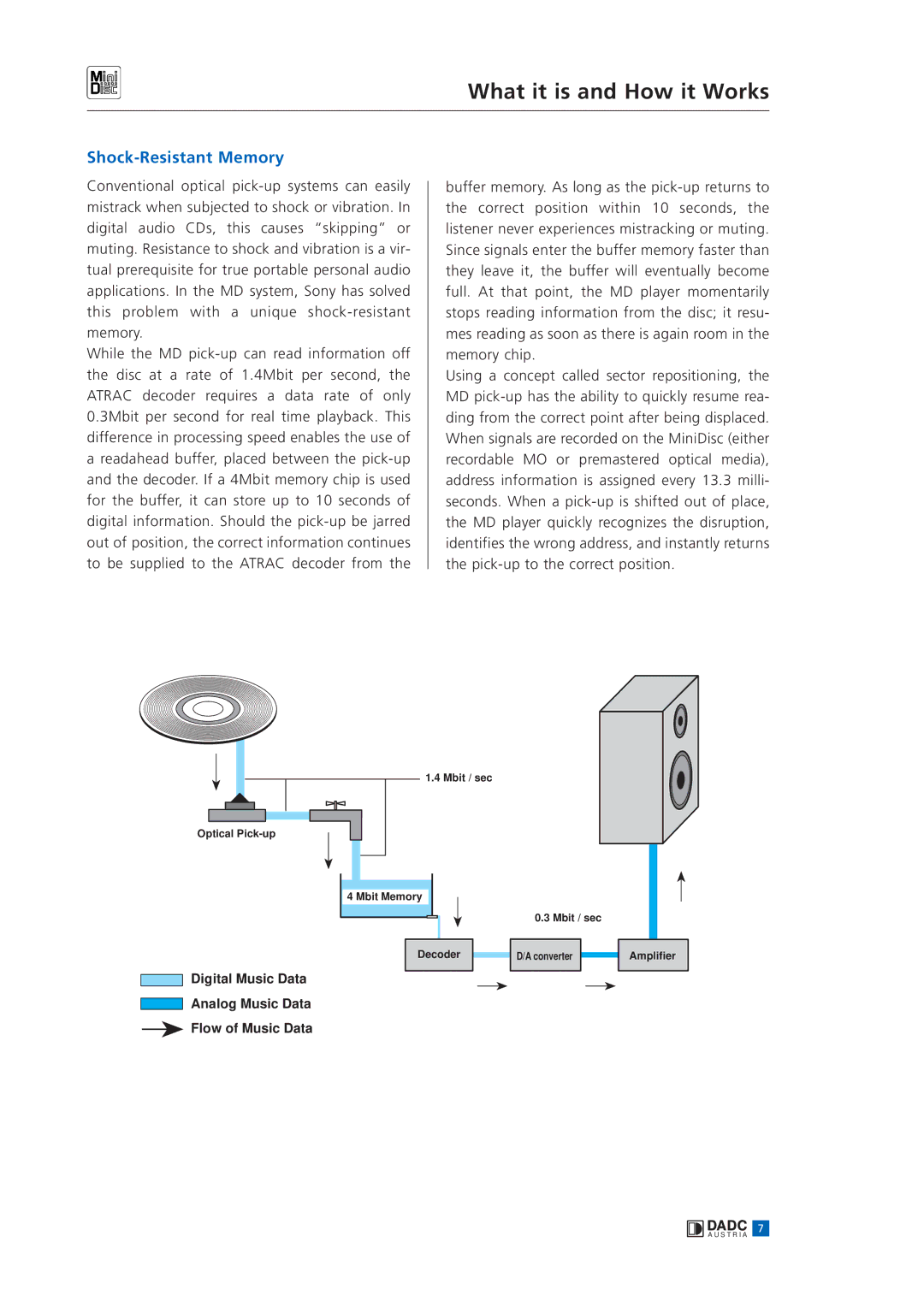What it is and How it Works
Shockck--ResistantResistantMemoryMemory
Conventional optical pick-up systems can easily mistrack when subjected to shock or vibration. In digital audio CDs, this causes “skipping” or muting. Resistance to shock and vibration is a vir- tual prerequisite for true portable personal audio applications. In the MD system, Sony has solved this problem with a unique shock-resistant memory.
While the MD pick-up can read information off the disc at a rate of 1.4Mbit per second, the ATRAC decoder requires a data rate of only 0.3Mbit per second for real time playback. This difference in processing speed enables the use of
areadahead buffer, placed between the pick-up and the decoder. If a 4Mbit memory chip is used for the buffer, it can store up to 10 seconds of digital information. Should the pick-up be jarred out of position, the correct information continues to be supplied to the ATRAC decoder from the
buffer memory. As long as the pick-up returns to the correct position within 10 seconds, the listener never experiences mistracking or muting. Since signals enter the buffer memory faster than they leave it, the buffer will eventually become full. At that point, the MD player momentarily stops reading information from the disc; it resu- mes reading as soon as there is again room in the memory chip.
Using a concept called sector repositioning, the MD pick-up has the ability to quickly resume rea- ding from the correct point after being displaced. When signals are recorded on the MiniDisc (either recordable MO or premastered optical media), address information is assigned every 13.3 milli- seconds. When a pick-up is shifted out of place, the MD player quickly recognizes the disruption, identifies the wrong address, and instantly returns the pick-up to the correct position.
1.4 Mbit / sec
Optical Pick-up
4 Mbit Memory
Decoder
Digital Music Data
Analog Music Data
Flow of Music Data
0.3Mbit / sec
D/A converter

